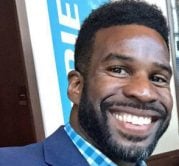Closing the awareness gap and communicating the credit union difference

One-third of all U.S. citizens are currently members of a credit union. However, most have little to no idea what a credit union actually is and cannot correctly articulate how a credit union differs from a bank. For non-members, the lack of awareness is more acute.
CUNA recently launched a Consumer Awareness Initiative to conduct nationwide research and help the industry create top of mind consumer awareness of and belief in credit unions as the best option in financial services. Myles Bristowe, vice president of marketing strategy and leader of Engagement Builder for PSCU, was invited to sit on the Consumer Awareness Advisory Group made up of a diverse cross-section of marketing leaders from various sectors of the credit union system.
The findings from the consumer research revealed a number of surprises and glaring inconsistencies in the way credit unions have been positioning themselves. These findings undoubtedly contribute to the sub-10 percent market share numbers credit unions are working to improve, despite having over 110 million U.S. members.
On March 8, 2017, the Engagement Builder team hosted a webinar to share the provocative findings of the research with special guest speakers, Douglas Kiker, chief strategic communications officer for CUNA, and Graeme Trayner, vice president of the Brands and Communications practice at Greenberg, Quinlan and Rosner. Over 400 credit union leaders and marketers participate in the webinar.
The research findings shared during the webinar revealed that credit unions are widely trusted by consumers and are best known for good rates, especially on car loans. However, there are several “myths” that consumers believe about credit unions:
- “I am not eligible to join a credit union.” The biggest difference between banks and credit unions is that a credit union serves a specific group of people or community. Criteria can include where someone lives, their profession, college affiliation or religious beliefs. With so many credit unions available today, non-members need to understand that eligibility guidelines are much broader than they might think. Consumers should conduct their own research to find a credit union that would be the best fit for their needs.
- “Credit unions are primarily for people in need.” Contrary to this belief, anyone can join a credit union. As mentioned above, each credit union has a commonality between its members. However, this does not mean that members have to be in need of financial, medical or professional support.
- “Credit unions have limited ATMs and branches, which translates into limited access to money.” Credit unions are cooperative in nature, meaning they work together to provide the best options for all members. Credit union members have access to shared banking networks without incurring fees and can utilize sister credit unions to perform banking activities at other locations. The options are not limited, just simply different from those offered by a traditional bank.
- “Credit unions are small and less secure than banks.” Credit unions do not have the federal insurance that banks do, which has caused misconceptions among consumers about credit unions for some time. Deposits with credit unions are insured by the National Credit Union Administration (NCUA), which offers the same type of coverage that banks have. Credit unions are held to the same regulations as banks and often times face more restrictions on their investments and loans.
Through education and awareness, the goal is to help debunk misconceptions about credit unions for non-credit union members and to shed light on the truth about the credit union difference. Credit unions can take part in the effort to “close the gap” through every interaction with members and non-members alike.
The entire webinar was recorded and is available for viewing by all registered subscribers of Engagement Builder at engage.pscu.com.





